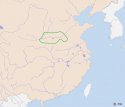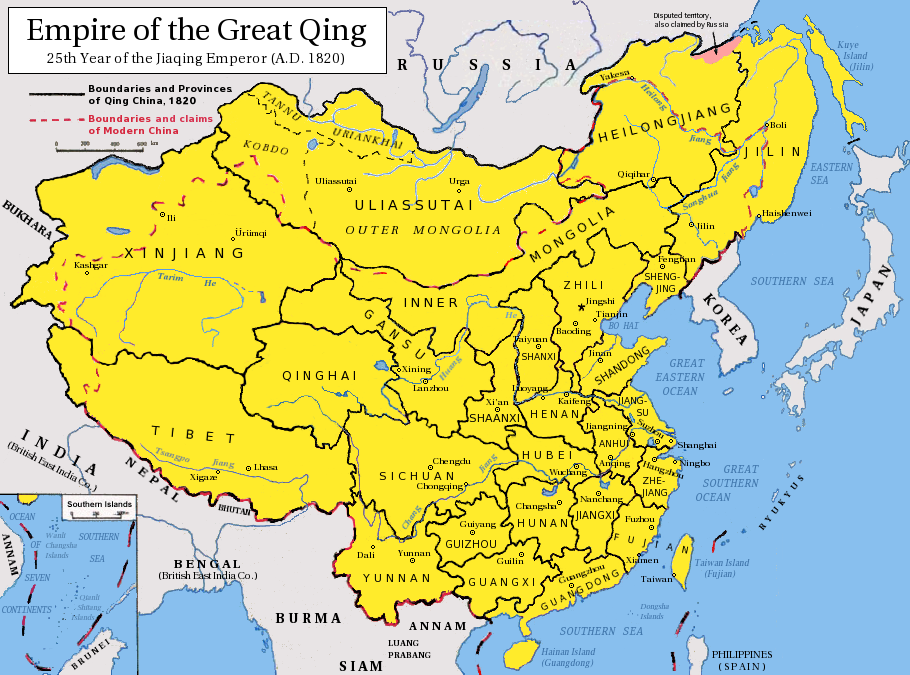Regarding the hypothetical magic battlefield, I think it depends very much on what the battlefield is like and whether Qin stands to fight or tries to conduct a mobile battle. The most formidable part of Macedonian army is undoubtedly the Phalanx.
In a stand up fight, the Macedonian Phalanx is essentially impossible to resist from the front when on even ground. Ranks of crossbowmen that Qin could deploy probably won't make a huge amount of difference as the Phalanx is 12 or 18 ranks deep, and each rank is well armored and protected. Those in the front rank would enjoy bronze body armor and greaves, while those in the back would have laminated linen armor. Overlapping hoplon shields would offer excellent protection against darts and there would be no easy way to deprive a phalanxman of his protection.
So if 30K macedonians fights 30K Qin troops in a small, level battlefield, and the flanks of the Macedonian phalanx can't be turned, then I would say the Macedonians would conqueror. I suspect 30K Macedonians can probably defeat a much larger number of Qin troops in this scenerio.
However, Phalanx is also incapable of dealing with broken ground, uneven slopes, and other geographical conditions that makes it hard for a body of fast walking men to maintain very close formation. Iy is also incapable of dealing readily with having its flank turned. Roman legions ultimately crushed Macedon in a decisive battle where the sides are evenly match in number of men by drawing the Phalanx to battle on uneven sloping ground, exploiting the difficulty parts of phalanx has in holding formation on rough ground, drawing one part of the phalanx forward while the other is stuck on broken ground, turn the flank of the forward part of phalanx and defeating it from behind. So if Alexander is forced to fight a well handled force of Qin troops on sloping and broken ground, Qin forces would have the opportunity to do what the Romans did to Philip of Macedon and turn the flank of the Phalanx to crush it.
If the Qins do not stand to fight on small confined battlefield, but continue to skirmesh with Alexander, then it becomes a case of can Alexander's skirmeshers hold off Qin forces. Alexander's skirmeshing forces are formidable, being a combined arms force of heavy and light calvary, supported by light infantry that moves with calvary. I don't know how good Qin skirmeshers really were compared to the Macedonians. But if Macedonians lose their skirmeshers the phalanx would be in deep trouble as it would easily have its flanks turned.
In a stand up fight, the Macedonian Phalanx is essentially impossible to resist from the front when on even ground. Ranks of crossbowmen that Qin could deploy probably won't make a huge amount of difference as the Phalanx is 12 or 18 ranks deep, and each rank is well armored and protected. Those in the front rank would enjoy bronze body armor and greaves, while those in the back would have laminated linen armor. Overlapping hoplon shields would offer excellent protection against darts and there would be no easy way to deprive a phalanxman of his protection.
So if 30K macedonians fights 30K Qin troops in a small, level battlefield, and the flanks of the Macedonian phalanx can't be turned, then I would say the Macedonians would conqueror. I suspect 30K Macedonians can probably defeat a much larger number of Qin troops in this scenerio.
However, Phalanx is also incapable of dealing with broken ground, uneven slopes, and other geographical conditions that makes it hard for a body of fast walking men to maintain very close formation. Iy is also incapable of dealing readily with having its flank turned. Roman legions ultimately crushed Macedon in a decisive battle where the sides are evenly match in number of men by drawing the Phalanx to battle on uneven sloping ground, exploiting the difficulty parts of phalanx has in holding formation on rough ground, drawing one part of the phalanx forward while the other is stuck on broken ground, turn the flank of the forward part of phalanx and defeating it from behind. So if Alexander is forced to fight a well handled force of Qin troops on sloping and broken ground, Qin forces would have the opportunity to do what the Romans did to Philip of Macedon and turn the flank of the Phalanx to crush it.
If the Qins do not stand to fight on small confined battlefield, but continue to skirmesh with Alexander, then it becomes a case of can Alexander's skirmeshers hold off Qin forces. Alexander's skirmeshing forces are formidable, being a combined arms force of heavy and light calvary, supported by light infantry that moves with calvary. I don't know how good Qin skirmeshers really were compared to the Macedonians. But if Macedonians lose their skirmeshers the phalanx would be in deep trouble as it would easily have its flanks turned.




